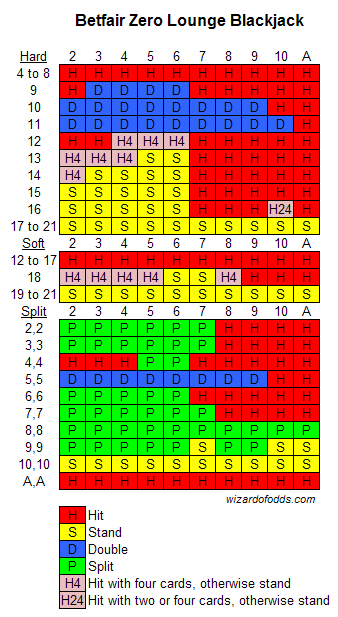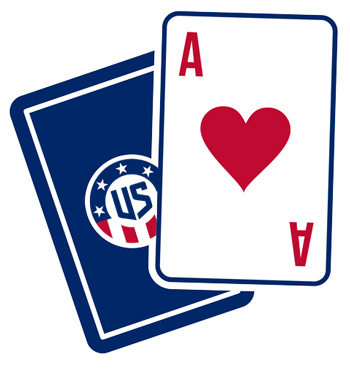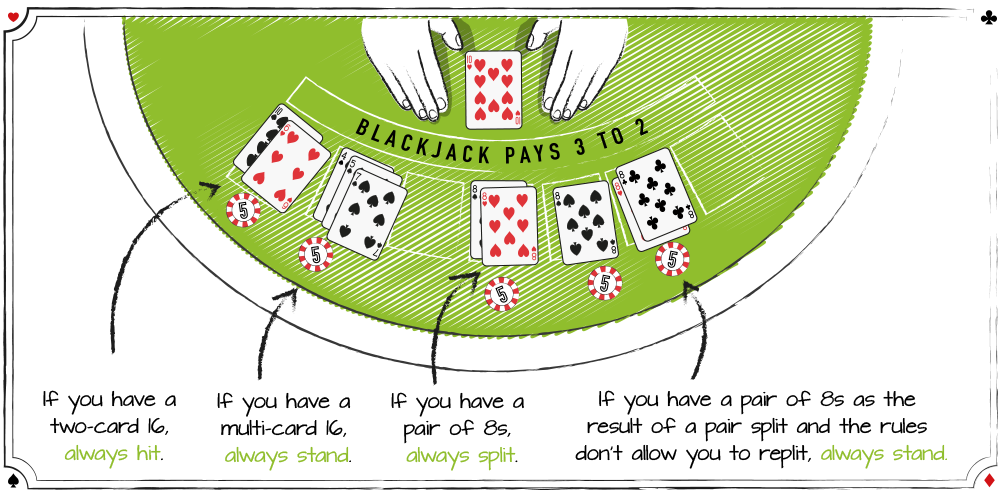Blackjack Strategy House Edge
Blackjack Strategy FAQ “Which house blackjack rules are the worst for the player?” The absolute biggest player-unfriendly rule is when the house has the dealer win any sort of push. This can swing the house edge from 3.5 to 25% depending on how many types of pushes the dealer wins! Mar 21, 2020 Blackjack’s house edge may be much more flexible given how you can apply strategy, but the foundation of the edge comes from the simple fact that you can bust before the dealer even has a chance to play their hand. The Blackjack house edge calculator will help you see your and the casino odds in the specific game you are playing. Select the Rules of the game; 2. Press 'Calculate' button; In the first table you can see your odds according to dealer up card. In blackjack the house edge is the statistical advantage the casino has over the player. At any blackjack table the dealer is the casino representative. By acting last in a hand, the dealer gains the advantage over the players by seeing their cards, actions and potential mistakes.
Playing and mastering blackjack are very different things. Mastery of blackjack starts with understanding the house edge and recognizing how it can impact your game.
Understanding the house edge is vital for becoming a player that is capable of taking on the house. Without further ado, let’s look at how to reduce the house edge.

The basic playing strategy is a set of guidelines that gives you the optimal way to play every hand dealt to you when the only information you have is your hand and the dealer’s up-card.
Basic strategy is the mathematically correct way to play every hand because over time it will maximize the amount of money you will win and minimize your losses.
The reason that the game of blackjack is subject to mathematical analysis is because it is, inherently, a numbers game; that is, blackjack has a fixed set of rules.
What Is the House Edge?
The casino house edge is the mathematical advantage that a casino has over its players.
This advantage changes by game, and is typically represented as a percentage and denotes the amount of return that the house can expect to receive over time.
It also represents the percentage of losses that the player will likely incur over any measurable amount of time.
This does not mean that the player can’t win more or even turn a profit, it only means that the house will take some money in the long run.
How Much is the House Edge in Blackjack?
The house edge in blackjack is relatively small, with it being as low as 1% when a basic blackjack strategy is implemented correctly.
In blackjack, the house edge comes from the dealer having a hidden card about which the player has to make assumptions.
In addition, if the player busts, the dealer wins, even if they then bust in the same round. Learning blackjackodds and strategy makes this less of an issue.
Blackjack Odds
I’ll admit, understanding blackjackodds is more difficult than it is for other casino games. This is attributed to the randomness of the draw and the number of different combinations.
Regardless, there are some ways of determining the odds of drawing specific cards. The initial probability of drawing a card of any value is just under 8%, based on there being 13 different possible options.
However, seeing as Jacks, Queens and Kings all have a value of 10 in blackjack, the odds of drawing a card valued at 10 is 4/13, which is a probability of 31%.

As a result, the house edge can be reduced simply by having an idea of the odds of drawing certain cards.
For example, if you happen to draw a Jack and a King, then you know that the odds of drawing yet another 10-value card are much reduced. Please don’t though. Keep your 20 and your money, most of the time.
Now that you have a basis for understanding the house edge, let’s take a look at some basic strategy.
Surrender
You should surrender a hand when your chance of winning is less than one out of four hands, i.e., your expected loss is worse than 50%.
This means that statistically, if playing the hand has less than a 25% chance of winning and therefore greater than a 75% chance of losing, you will save money in the long run by just surrendering.
Besides reducing the house edge, surrender also has this benefit: it will stabilize your bankroll, meaning surrender will flatten the fluctuations in your bankroll, compared to a game where surrender is not offered and you have to play all your hands to completion.
Logical Splits

There are three main reasons why it makes sense to split rather than to employ an alternate strategy. You should always split when:
- You will win more money on average (bold strategy)
- You will lose less money on average (defensive strategy), or
- You will turn a losing hand into a winning one (offensive strategy).
Double Down
Most of the time when you playblackjack you must play defensively because the dealer’s hand has a likelihood of beating your hand. But the logic for doubling down is you get to go on the offensive at the best possible time – when the dealer has a relatively high probability of busting or when you have the edge over the dealer on the hand.
The logic for doubling on soft hands isn’t always clear to players so they often pass up the opportunity.
The reason you double on soft hands is not so much to outdraw the dealer as it is to get more money on the table when the dealer is vulnerable to busting (shows a low-value upcard of 2-6).
If you follow the hard doubling down basic strategy, your gain will be about 1.3 percent. Learn when to double down on soft hands and you’ll gain another 0.13 percent.
Take a 6-3 against a dealer’s 5 upcard. If you doubled down and drew a 2 for an 11, the only way you could win the hand would be if the dealer busted.
If you hadn’t doubled down, you could have drawn another card to your 11 and improved your chances of winning. Nevertheless the right play is to double down because of the extra money you put into action. Here’s why.
Hit’em Hard…..or Soft
The most common mistake made by novice blackjack players is to always stand on their stiff hands because they are afraid to bust.
Stiff means a hand that can be busted by a one-card draw; for example a hard 12 through 16.
However, this is a big mistake when the dealer’s upcard is a 2 through 6. Since you know the dealer must hit stiff hands by the rules of the game, you should:

- Not risk busting your stiff hand (resulting in an automatic loss) when the dealer’s up-card is 2-6 because she may end up with a stiff hand
- Instead, stand pat, let the dealer draw, and hope she busts
Blackjack House Edge Calculator
There is one exception to this rule and that’s when you are dealt a 12 and the dealer’s upcard is a 2 or 3.
Consequently, the percentages are slightly better for:
- Hitting a hard 12 against a dealer’s 2 and 3 up-card rather than standing.
When the dealer shows a 7 through A upcard, there is a strong likelihood she will end up with a pat hand (i.e., a 17 through 21). Therefore, when you hold hard 16 or less, and surrendering, pair splitting, or doubling is not an option, the percentages are better if you hit your hand even at the risk of busting until you achieve at least a hard 17.
Reducing the House Edge in Blackjack
There are a variety of ways to reduce the house edge in blackjack.
As previously mentioned, the simplest is to learn a basic blackjack strategy and commit it to memory before you play. A basic blackjack strategy is a set of rules, usually presented in a chart, which tells you how to play your hand after it is dealt.
For example, if you are dealt a soft 17 (Ace, six), the chart compares it to the dealer’s upcard and informs you of how to act. In some cases, using a basic strategy can reduce the house edge to just 0.5%.
If you want to lower the house advantage, studying the basics of blackjack strategies is a good place to start.
In addition to basic strategy charts, several strategies have been developed to reduce the house edge in blackjack even further.
Unlike the basic charts, which only focus on the total value of your hand, these strategies look at what cards make up your hand and give specific actions depending on the cards, they’re called composition-dependent strategies.
Casino Edge In Blackjack
In most cases, by using a composition-dependent strategy along with the existing basic strategy charts, it’s possible to reduce the house edge to as little as 0.18%, which is basically breaking even.
Conclusion
Blackjack is one of the best games in the casino for a player, but it’s important to learn basic strategy if you want to take it seriously and have the best odds of winning.
With numerous cards valued at a 10 or 11 (10, jack, queen, king, ace), there are a variety of things to consider when it comes to hitting, standing, doubling down, or splitting.
There are numerous resources to check out and learn the best strategy when playing real moneyblackjack, and it’s highly recommended. Applying the strategy perfectly can reduce that house edge down to as low as .05 percent.
Blackjack Perfect Strategy House Edge
There’s also one more thing to remember: Unlike the movies, players are not allowed to touch the cards. Simple hand movements are the norm in most games. Gamble on.